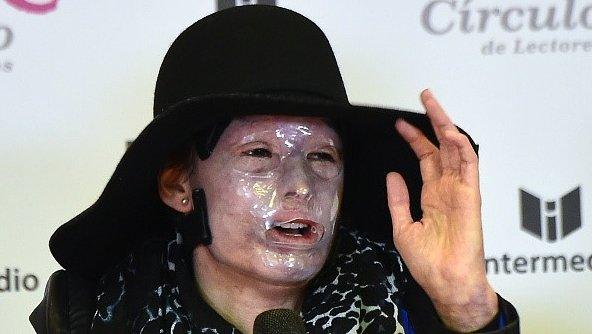Colombia facing violence despite Farc deal, ICRC says
- Published
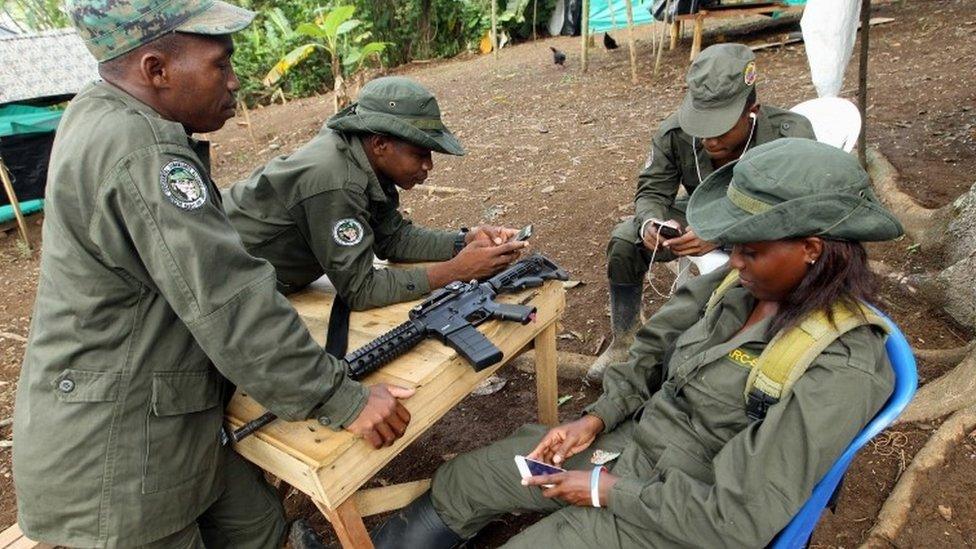
An estimated 7,000 Farc rebels have gathered in transitory camps to lay down their weapons and rejoin civilian life
Thousands of people across Colombia are still falling victim to rape, killings and torture despite a peace deal with Farc rebels, the International Committee of the Red Cross says.
The ICRC urged the government to take stronger action to reduce violence.
The Red Cross says the peace deal with the Farc is working.
But it warns that it will take decades for Colombia to deal with the direct and indirect consequences of the conflict, including urban violence.
'A long way to go'
The government and the Farc (Revolutionary Armed Forces of Colombia) signed a peace agreement in November, to put an end to more than 50 years of conflict.
In a report, external, the Red Cross says violence decreased in 2016 as a result of the peace process.
The signing of the deal was preceded by a ceasefire and a number of confidence-building measures.
But the ICRC calls on the government to do more to demobilise Farc child soldiers, clear landmines and tackle urban violence.
It points out that three other rebel groups remain active in the country.
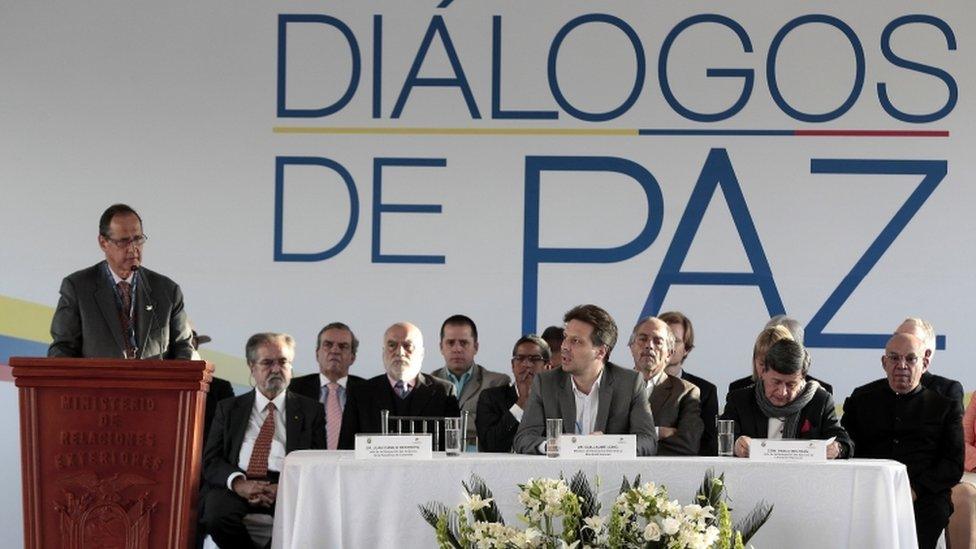
The ELN peace talks were launched in Ecuador on 7 February
"Building a country at peace requires everyone to make an effort and can take decades," the ICRC's delegation head in Colombia, Christoph Harnisch, warned.
"The tragedy of missing loved ones, the fear of unexploded ordnance, armed violence in urban settings, threats, the restrictions on the movements of whole communities in areas controlled by armed groups - these all point to there still being a long way to go in Colombia," he added.
Some 86,000 people are missing because of the conflict, says Mr Harnisch.
The government says 260,000 people have died and 6.9 million people have been displaced since 1964, when the Farc began its uprising.
Last month President Juan Manuel Santos's government began formal peace talks with the country's second-largest rebel group, the ELN (National Liberation Army).
Two other smaller groups are still engaged in armed struggle against Colombian forces: the Gaitanista Self-Defence Forces of Colombia (AGC) and the People's Liberation Army (EPL).
- Published1 March 2017
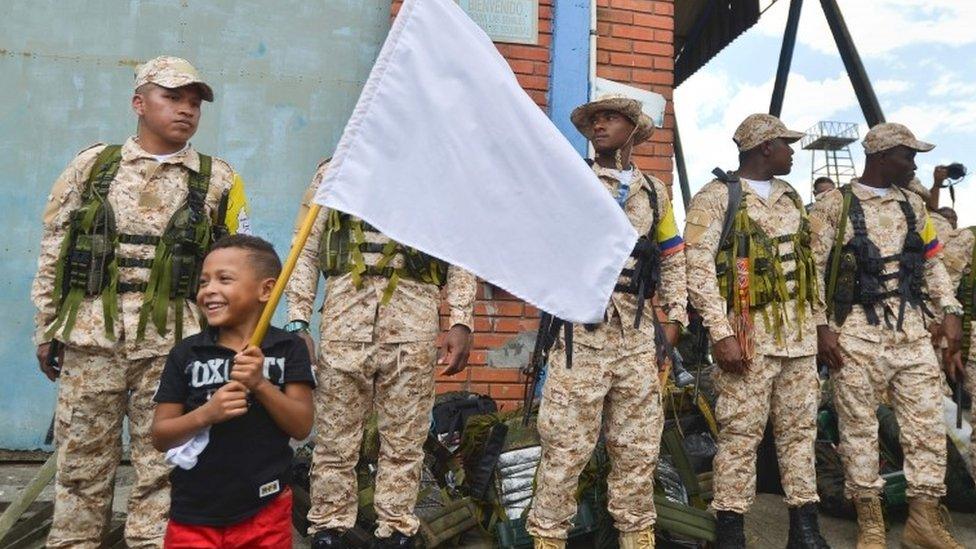
- Published8 February 2017
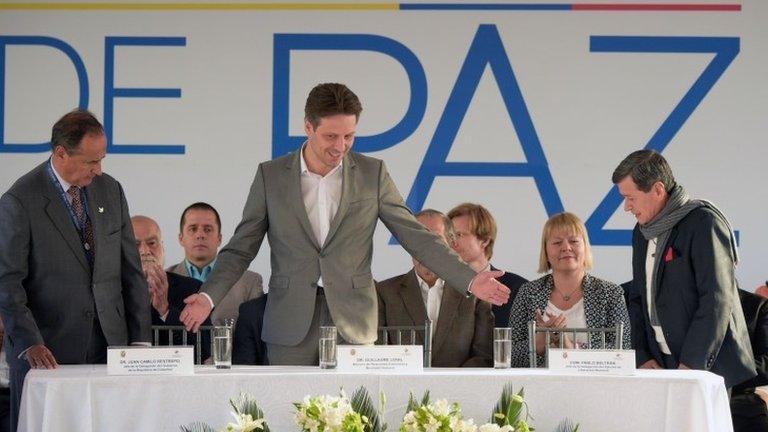
- Published9 December 2016
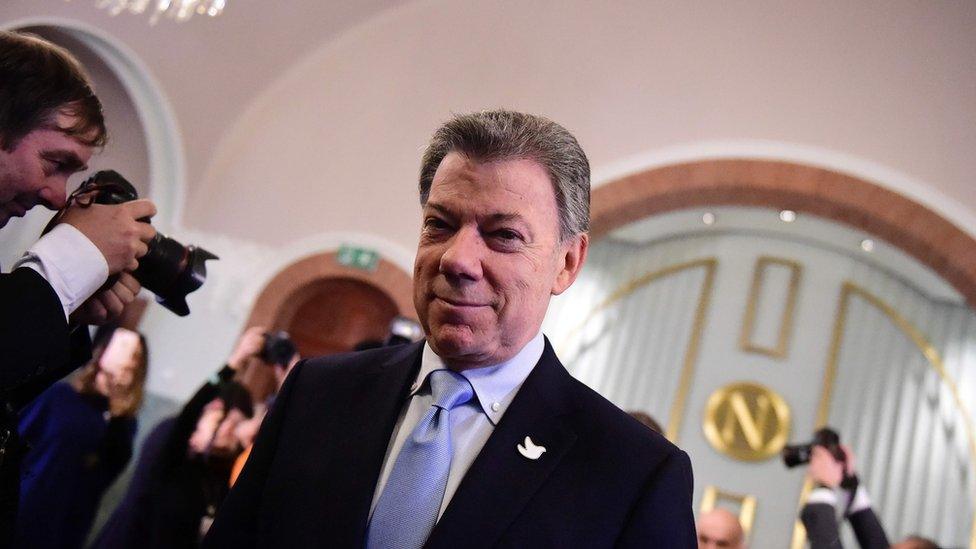
- Published26 November 2015
